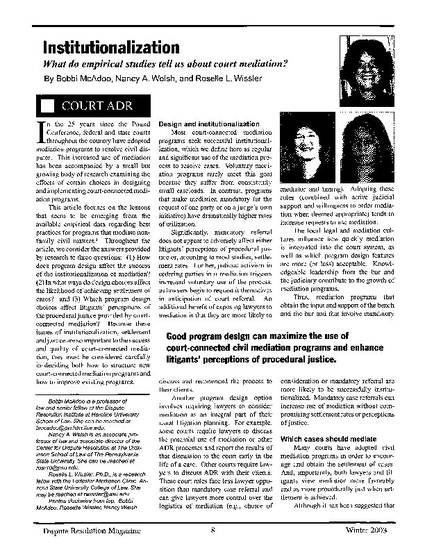
In the 25 years since the Pound Conference, federal and state courts throughout the country have adopted mediation programs to resolve civil disputes. This increased use of mediation has been accompanied by a small but growing body of research examining the effects of certain choices in designing and implementing court-connected mediation programs.
This article focuses on the lessons that seem to be emerging from the available empirical data regarding best practices for programs that mediate non-family civil matters. Throughout the article, we consider the answers provided by research to three questions: (1) How does program design affect the success of the institutionalization of mediation? (2) In what ways do design choices affect the likelihood of achieving settlement of cases? and (3) Which program design choices affect litigants' perceptions of the procedural justice provided by court-connected mediation? Because these issues of institutionalization, settlement and justice are so important to the success and quality of court-connected mediation, they must be considered carefully in. deciding both how to structure new court-connected mediation programs and how to improve existing programs.
Available at: http://works.bepress.com/nancy-welsh/21/
